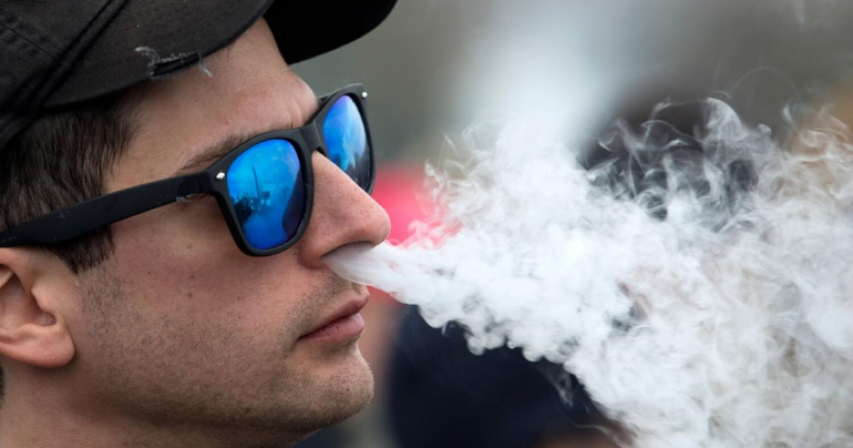Is vaping less harmful? UAE doctor warns of health risks as e-cigarettes gain popularity

E-Cigarette Market Growth and Health Risks
The e-cigarette market in the UAE is anticipated to grow at an annual rate of 7.28% over the next five years, with revenue projected to reach $68.5 million by the end of this year, according to a recent study by Statista, a Hamburg-based online portal on consumer markets.
Rising Popularity of Vaping
The increasing popularity of e-cigarettes, or vaping, is largely attributed to their use as an alternative to smoking or as a tool for smoking cessation. However, the colorful packaging and enticing fruity flavors may be misleading the public about the true health risks associated with these electronic nicotine delivery systems. A Dubai-based doctor has raised concerns about the hidden dangers of vaping, not only to the users but also to those exposed to second-hand vape aerosol.
Second-Hand Vape Exposure
"Non-smokers exposed to second-hand vape aerosol absorb nicotine levels equivalent to those exposed to second-hand cigarette smoke," explained Dr. Mohammed Harriss, a consultant pulmonologist at Medcare Sharjah and Medcare Royal Speciality Hospital Al Qusais. He further noted that vape aerosol contains several carcinogens, including lead and formaldehyde, which could increase the risk of developing cancers.
Undisclosed Chemicals
Vape liquids have been found to contain thousands of unknown chemicals and substances, many of which remain undisclosed by manufacturers. When the vape liquid is heated and inhaled, these ultrafine chemicals disperse into the air, posing a risk to the lungs of those nearby. The British Medical Journal (BMJ) has highlighted these concerns, noting that the ultrafine particles in vape aerosol can cause significant harm when inhaled.
Health Hazards and the Renormalization of Smoking
Dr. Harriss emphasized the primary hazard posed by the rising popularity of e-cigarettes: the potential renormalization of smoking. "Smoking is the largest preventable cause of death, and vaping should not be seen as an excusable alternative," he stated. He warned that reversing the progress made in reducing smoking globally would be catastrophic. Dr. Harriss advised that vaping should be regarded with the same caution as smoking, as more users are suffering from lung injuries and irreversible damage due to the harmful chemicals in vape products.
Appeal to Non-Smokers and Youth
The ease of concealment, due to the rapid evaporation of vape vapor, has made vaping particularly attractive to former non-smokers and the youth. Many perceive vaping as less harmful than traditional cigarettes, but recent research from the US Centers for Disease Control (CDC) has revealed numerous cases of poisoning among children and adults who have ingested, inhaled, or absorbed vape smoke through their skin and eyes.
Tobacco-Free Workplace Initiative
In response to the growing vaping issue, the UAE Ministry of Health and Prevention (MoHAP) recently introduced a tobacco-free workplace guide. This initiative aims to eliminate tobacco products from work premises and includes educational materials on the health impacts of smoking. The guide provides practical instructions for managers and employees to establish a smoke-free environment and outlines procedures for addressing violations.
UAE Smoking Regulations
UAE laws prohibit smoking in closed public places, including government buildings, health and educational institutions, public transport, and other public areas. The comprehensive tobacco-free workplace guide reinforces these regulations and aims to protect the public from the dangers of both smoking and vaping.
Conclusion
As the UAE's e-cigarette market continues to grow, it is crucial to remain vigilant about the associated health risks. Both users and those exposed to second-hand vape aerosol face significant dangers. Public health initiatives and strict regulations are essential to mitigate these risks and ensure the well-being of the community.
By: Sahiba Suri





Comments